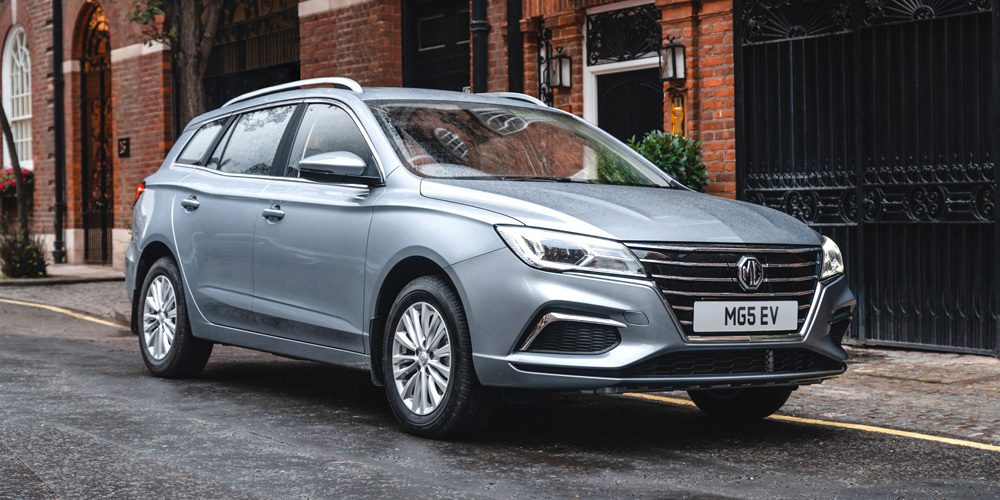With Rideshare Driving there’s always a lot of scepticism before any novelty is widely accepted – it’s human nature to be cautious. We can only assume we were the same back when we first discovered fire, but we know for sure that we gave the avocado toast a run for its money.
It’s not going to be all that different with EV technology either.
What if it’s just a passing trend? Does it make sense to drive an electric car for ridesharing? Do Uber or Bolt even care? But most importantly, is the driving range of an EV enough for serious on-demand rideshare driving?
Yes, range anxiety is still the main reason holding back many drivers from upgrading to an electric car. And understandably so.
It’s okay to have range anxiety
Avid EV fans and early adopters are often too biased to admit that their electric cars (or their arguments) aren’t exactly bulletproof, and might make you feel silly if you so much as mention that you’re worried about range.
They may in fact dismiss any uncomfortable question to defend EVs, but rest assured, they’d all had the same doubts at one point. Because the numbers don’t lie — range anxiety is very much real, and it makes sense to be concerned.
A Kia Niro self-charging Hybrid can go nearly 700 miles on a tank of petrol. An electric subcompact SUV like the Hyundai Kona has less than half that range – about 300 miles on a single charge.
And while you can fill up a petrol car and be back on your way within minutes, EVs take time to charge. Perish the thought, if your battery were to run out with no charger within reach, you’d probably shed a tear of nostalgia for the days when all you needed to get back on the road was an embarrassing taxi ride to the pump.
So how is an EV any good as a work tool?
The thing is, whichever way you crunch the numbers, petrol and diesel cars are more practical than the new electric technology. Why, then, do you still see more and more people driving electric cars all around London?
It’s simple: electric range doesn’t really matter in the city. Here’s why:
1. You’ll drive less while earning the same
At Splend, we keep a close eye on how much Uber drivers make and drive, so we can always offer the cars and services that best suit their goals. We noticed that our customers who have electric cars drive about 20% less than those who are in petrol-hybrids. The explanation is simple: with no Congestion Charge, they can focus on rideshare driving in Central London, so they need to travel less in-between rides, therefore earning more per mile even before any EV incentives.
It’s also worth mentioning, that even our full-time drivers rarely travel more than 150 miles a day in London, which is about half the total range of a typical EV. So, even if you start the day at 70-80% charge, you’ll get home with plenty of headroom left.
EV drivers earn more per trip anyway, just because of the car
Uber drivers who have an electric car get more trip requests through the Uber Green feature, where riders can request to travel in a zero-emission car.
Similarly, as a Bolt driver, you can earn more per trip as they offer weekly incentives to their EV drivers, and Ola also dropped their commission rate to 0% for the first three months if you drive an electric car.
This makes their work much more efficient, so they can afford to work fewer hours, and ultimately, their cars consume less in a typical day. As an added bonus, driving less saves good money on maintenance too, of which EVs require less anyway.
2. Electric cars are more efficient in city driving
EVs were born for the city. Sure, on a trip to Glasgow you’d need to stop at least once to charge up even the MG5, which is popular for its above-average range. And it’s going to take a while until you can set off again, adding a few hours to your trip – you’re clearly better off with a petrol car if you’re in a hurry to get there. But in London you’ll rarely use up a full charge in a day.
You’d have to go the city speed limit for almost seven hours without taking your foot off the pedal to drain the battery of even the Hyundai IONIQ Electric, which has the smallest range from our fleet. But that’s not how you drive, of course, and it’s not how batteries drain either.
EVs love the city as much as the city loves them
Electric cars are actually more efficient in the city than on the motorway due to the fact that they only consume when accelerating, and they charge the batteries when you’re braking or “engine braking.”
Also, in the city, waiting for your car to charge doesn’t have to be a waste of time. You can plug it into a fast charger during your lunch break or while you run errands. By the time you finish your grocery shopping, it’s ready for the next day.
3. When was the last time you ran out of petrol?
The theory is indeed hard to argue with: running out of juice with an EV is major trouble. And if you’re down to the last electrons it’s going to take even more time to get back on the road.
However, it’s not like it’s pleasant to run out of petrol either. Do you do it all the time, just because you probably don’t need to call a trailer to get home? We reckon that if you’re responsible enough not to run your petrol car on the last fumes, you won’t have trouble keeping enough charge in your EV either.
Think of it the other way around
Yes, with an EV you’ll probably always have charging somewhere in the back of your mind. But all it takes is a little getting used to, and developing a new habit. The rewards are worth it, and it’s not that big of a compromise as people make it out to be, really. You’ve probably done something similar before, and never looked back since.
Remember your first cell phone? It probably had clumsy buttons, a small and dim screen, and perhaps even an antenna sticking out of it. But it probably also had excellent reception everywhere and pulled through a week or more on a single charge. But would you give up your smartphone for one of those, just because you could leave for a weekend without bringing a charger?
About Splend
Splend is more than a set of wheels. We’ll help steer your career.
In addition to providing you with the most important tool in your career as a rideshare driver, we also offer ongoing training, support, and data-driven feedback via your personal Customer Specialist. You also enjoy a growing array of customer benefits including discounts from our partners.
For more information about Splend, drop by our London Hub at 393 Edgware Road Cricklewood, London, email us, or say hello on 0333 016 4331


![How to Become a Uber Driver [Complete Guide] | Splend](https://www.splend.co.uk/wp-content/uploads/2020/02/how-to-become-an-uber-driver-in-london-2.jpg)

